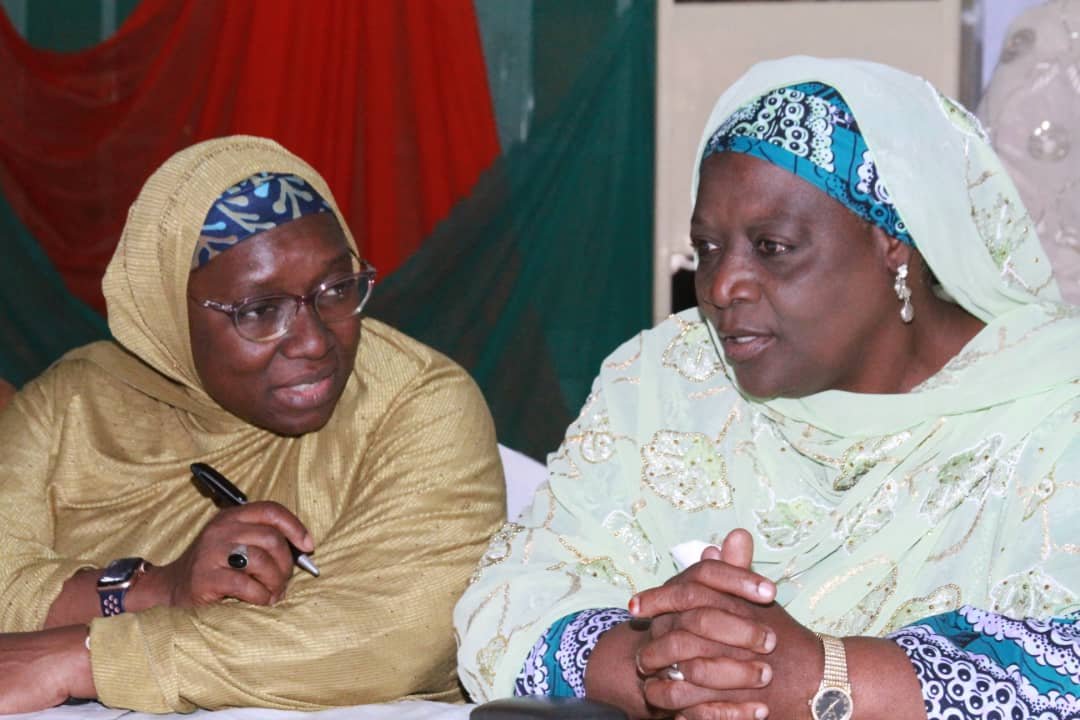ANRIN Provides Nutritional Support To 1.5m Kaduna Residents
About 1.5 million residents of Kaduna State have benefited from nutritional support intervention under the Accelerating Nutrition Results in Nigeria (ANRIN) project.
The initiative, executed by the Society for Family Health (SFH) with support from the World Bank, aims to address the persistent challenge of malnutrition in Nigeria.
At a dissemination event held on Tuesday in Kaduna, Dr. Omokhudu Idogho, Managing Director of SFH, highlighted the project’s achievements, noting its implementation in 12 high-burden states, including Kaduna.
He emphasized that the initiative has significantly improved maternal, infant, and child nutrition while enhancing adolescent health and family planning services.
Represented by AbdulSamad Salihu, SFH Chief of Party, Dr. Idogho stated that the project delivered over 9.4 million service contacts, reaching 1.5 million beneficiaries, including pregnant women, adolescent girls, and children under five.
He described the achievement as 108% of their performance target, attributing the success to a focused strategy known as the PUSH framework Plan, Utilize, Support, and Harmonize.
“Through house-to-house visits, facility-based services, and community outreaches, we provided essential commodities such as micronutrient powders, iron and folic acid tablets, vitamin A supplements, and family planning services to those who needed them most,” he said.
Dr. Idogho reiterated SFH’s commitment to expanding access to essential nutrition services and supporting Kaduna State’s journey toward universal health coverage.
In her remarks, Dr. Zainab Idris, Kaduna State Program Manager, praised the successful implementation of the ANRIN project. She revealed that SFH reached 1,264,895 beneficiaries, delivering 6.2 million nutrition and adolescent health services, surpassing the target of 5.7 million by 108%.
According to her, the project’s key achievements include establishing 46 school health clubs to promote nutrition education and menstrual hygiene.
“Implementing the Safe Space Initiative to empower married adolescent girls with health education, life skills, and family planning services.
Others are resolving 97% of reported grievances to ensure accountability and build community trust.
Dr. Mohamed-Idris also highlighted the project’s effective response to challenges such as insecurity and the Tudun Biri drone strike. In partnership with government agencies, SFH provided emergency nutrition support, food supplies, and economic empowerment initiatives to affected communities.
On her part, the commissioner for Health, Umma Ahmed, commended the ANRIN project for its role in reducing malnutrition and improving health outcomes across Kaduna State. She cited the 2024 National Demographic and Health Survey (NDHS), which reported a 15.4% reduction in stunting among children aged 0-5.
“In 2018, the stunting rate stood at 48.1%. Today, we celebrate a significant drop to 40.7%, representing real lives and families positively impacted by this intervention,” she said.
Ahmed stressed the need for sustained efforts to consolidate the project’s gains, strengthen systems, and promote accountability.
“The closure of ANRIN is not the end; malnutrition remains a challenge. Together, we can build a healthier Kaduna State where every child has the opportunity to grow and thrive.”
The commissioner expressed appreciation to development partners, including the World Bank, implementing agencies, civil society organizations, and frontline health workers for their tireless efforts and contributions to the project’s success.
ANRIN stakeholders also called for integrating its proven strategies into state and community health systems to ensure long term sustainability and continued improvement in nutrition outcomes.





